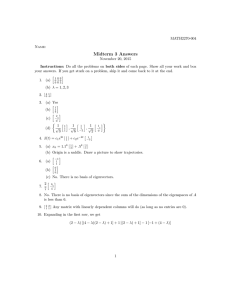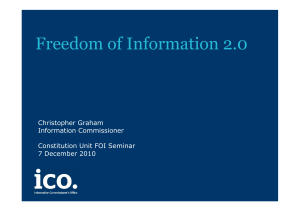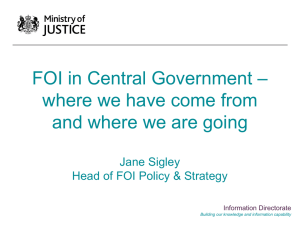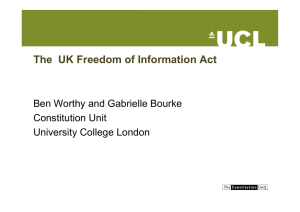Freedom of Information journal - Volume , Issue 5
advertisement
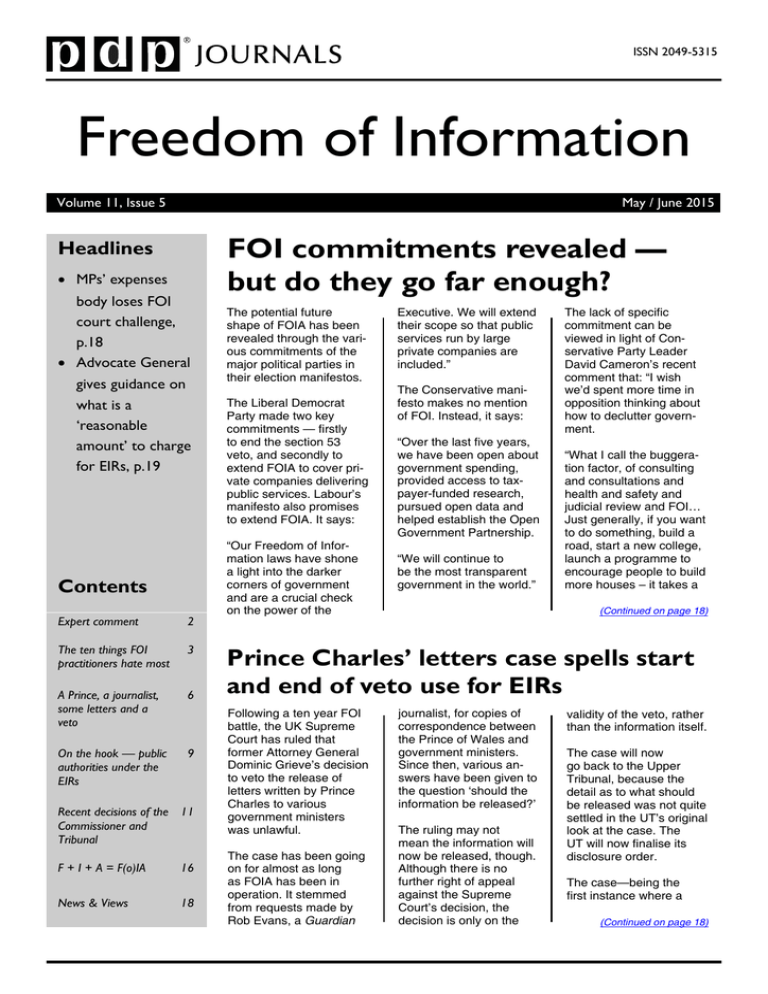
ISSN 2049-5315 Freedom of Information Volume 11, Issue 5 May / June 2015 Headlines MPs’ expenses body loses FOI court challenge, p.18 Advocate General gives guidance on what is a ‘reasonable amount’ to charge for EIRs, p.19 Contents Expert comment 2 The ten things FOI practitioners hate most 3 A Prince, a journalist, some letters and a veto 6 On the hook — public authorities under the EIRs 9 Recent decisions of the 11 Commissioner and Tribunal F + I + A = F(o)IA News & Views 16 18 FOI commitments revealed — but do they go far enough? The potential future shape of FOIA has been revealed through the various commitments of the major political parties in their election manifestos. The Liberal Democrat Party made two key commitments — firstly to end the section 53 veto, and secondly to extend FOIA to cover private companies delivering public services. Labour’s manifesto also promises to extend FOIA. It says: “Our Freedom of Information laws have shone a light into the darker corners of government and are a crucial check on the power of the Executive. We will extend their scope so that public services run by large private companies are included.” The Conservative manifesto makes no mention of FOI. Instead, it says: “Over the last five years, we have been open about government spending, provided access to taxpayer-funded research, pursued open data and helped establish the Open Government Partnership. “We will continue to be the most transparent government in the world.” The lack of specific commitment can be viewed in light of Conservative Party Leader David Cameron’s recent comment that: “I wish we’d spent more time in opposition thinking about how to declutter government. “What I call the buggeration factor, of consulting and consultations and health and safety and judicial review and FOI… Just generally, if you want to do something, build a road, start a new college, launch a programme to encourage people to build more houses – it takes a (Continued on page 18) Prince Charles’ letters case spells start and end of veto use for EIRs Following a ten year FOI battle, the UK Supreme Court has ruled that former Attorney General Dominic Grieve’s decision to veto the release of letters written by Prince Charles to various government ministers was unlawful. The case has been going on for almost as long as FOIA has been in operation. It stemmed from requests made by Rob Evans, a Guardian journalist, for copies of correspondence between the Prince of Wales and government ministers. Since then, various answers have been given to the question ‘should the information be released?’ The ruling may not mean the information will now be released, though. Although there is no further right of appeal against the Supreme Court’s decision, the decision is only on the validity of the veto, rather than the information itself. The case will now go back to the Upper Tribunal, because the detail as to what should be released was not quite settled in the UT’s original look at the case. The UT will now finalise its disclosure order. The case—being the first instance where a (Continued on page 18)

